Welsh politics 2018: All change at the top in a stormy year
- Published
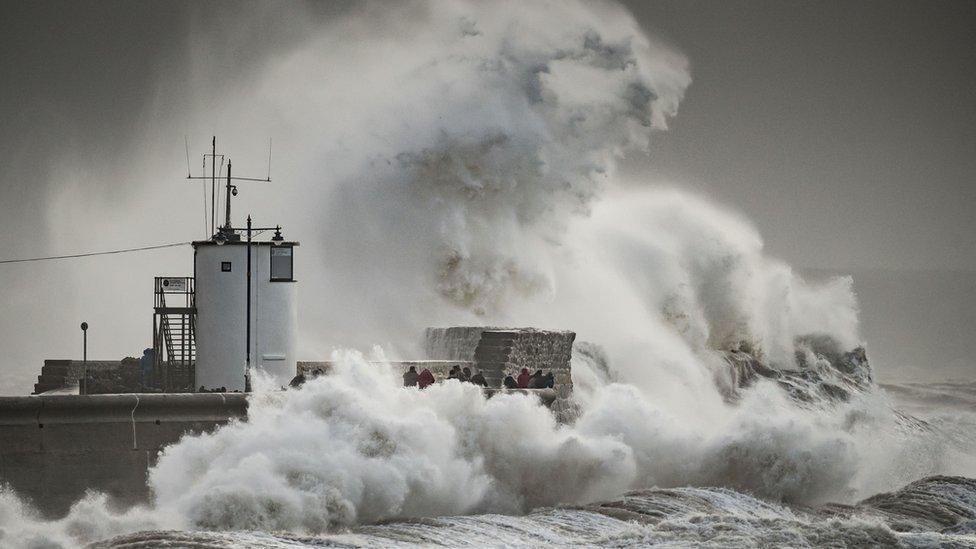
Welsh politics has been battered by stormy rows over 2018
Politics in Wales has sometimes been as stormy as the weather itself in 2018.
It has been dominated by a series of elections as all party groups in the assembly, for one reason or another, sought a change in leadership.
The aftermath of the death of Carl Sargeant continued to ripple through the Cardiff Bay political scene.
And it was a year that saw the first minister Carwyn Jones leave the office he held for nine years, following a long contest to replace him.
The year opened with the son of Mr Sargeant, Jack, successfully standing to replace his father in the Alyn and Deeside by-election.
He won the February poll, which led to dramatic scenes where he declared, in his first speech, that he knew he was not the only person in the Senedd "who wants justice for my father".
The young AM was stood just metres away from the man who sacked his dad from the cabinet, the now-former first minister Mr Jones, over allegations of inappropriate conduct.
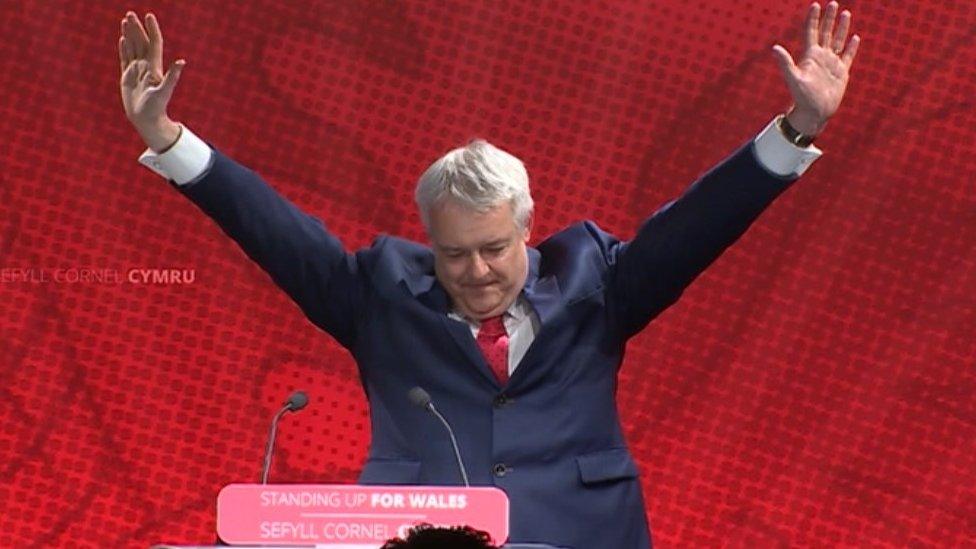
Carywn Jones bowed out in 2018 after nine years in the job
While some of the inquiries launched after Carl Sargeant's death completed in 2018, two of the most significant did not.
The main inquiry into what happened, to be led by QC Paul Bowen, has yet to get off the ground in the face of legal action from the Sargeant family.
An inquest into the death did begin, but was adjourned with the Welsh Government threatening legal action over unheard evidence.
A probe into whether Mr Sargeant's sacking was leaked found "no evidence of prior unauthorised sharing of information", while an attempt to get the report published led to a legal row.
Another inquiry, into whether Mr Jones lied to the assembly over claims of a bullying culture, did clear the first minister.
But as the first quarter of 2018 wore on there was a sense Mr Jones had lost authority - particularly in moments when Labour AMs sat in silence as he spoke in the chamber.
In April, he announced he would stand down, admitting the pressure he and his family had been under after the events of the previous few months.
It triggered the first of a series of leadership contests - but while Labour's was the first, it was last to finish, not electing its new leader until December.
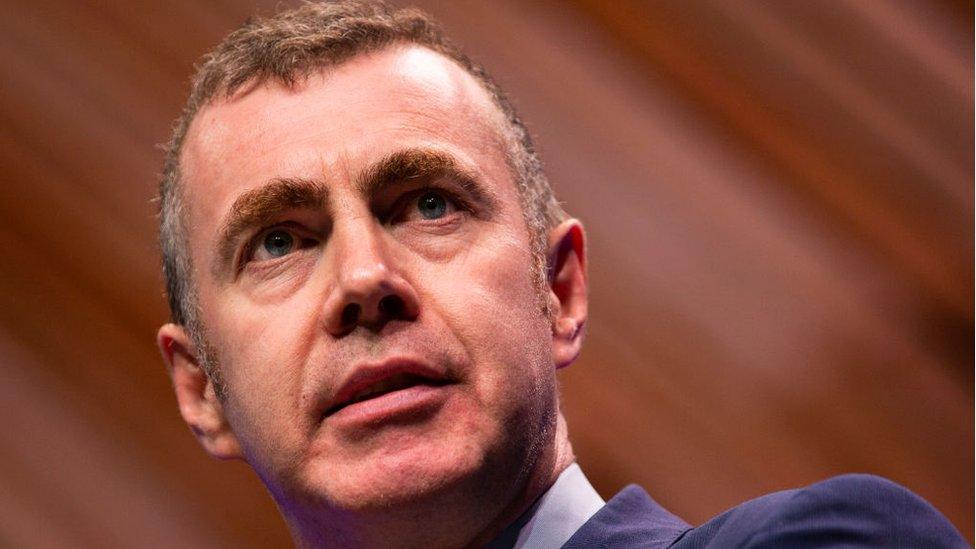
Adam Price defeated Leanne Wood in the Plaid Cymru leadership contest
Mark Drakeford was the favourite from the start and won, although not by the margin some expected.
He beat Eluned Morgan and Vaughan Gething.
All opposition leaders had faced pressure to go but Plaid Cymru's Leanne Wood, which has the third largest group of AMs, fought on despite challenges from Adam Price and Rhun ap Iorwerth.
Mr Price promised to put Welsh independence at the centre of Plaid Cymru's political platform, and was successful. Ms Wood came last.
There was leadership change in the largest opposition group, the Welsh Conservatives, too.
Andrew RT Davies gave the impression of a man who had had enough when he resigned from the helm of his party group, seemingly after realising it was not fully behind him.
Paul Davies became Tory assembly leader after he defeated Suzy Davies in what was arguably the most polite, and deeply uneventful, contest of the year.
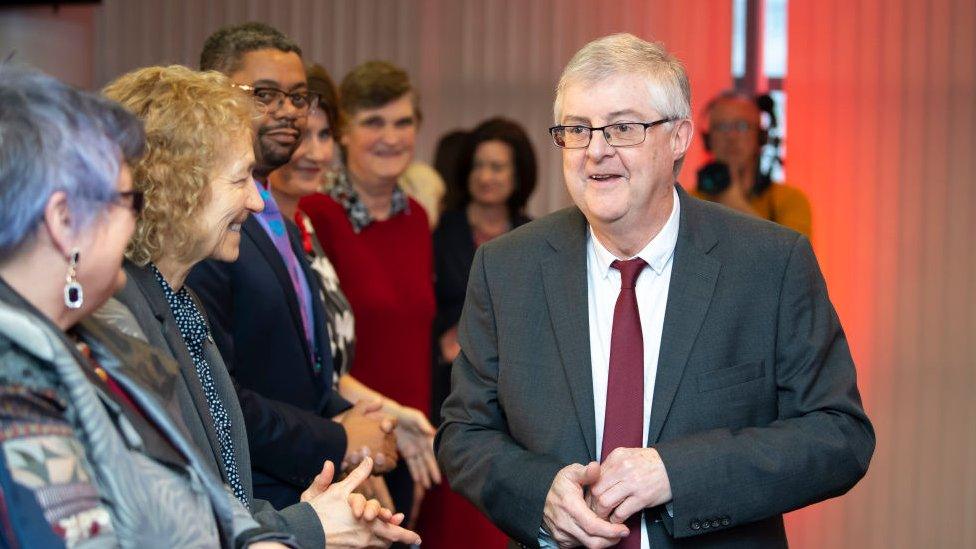
Mark Drakeford defeated Vaughan Gething and Eluned Morgan in the Welsh Labour leadership contest
UKIP in the assembly saw two changes in leadership, the team beset by endless bitter personality clashes.
Caroline Jones took over in what deposed leader Neil Hamilton said was an ambush in May, but she herself was kicked out via a leadership election by Gareth Bennett.
Ms Jones later left UKIP, accusing it of going too far to the right.
In the midst of all this turmoil, AMs passed a law on the minimum pricing of alcohol, following Scotland.
They also agreed to press ahead with changes to the institution, which will eventually see its name change from National Assembly for Wales to Senedd.
And there were developments in transport - the Welsh Government selected the operator for the new Wales and Borders rail franchise replacing the much derided Arriva Trains Wales.
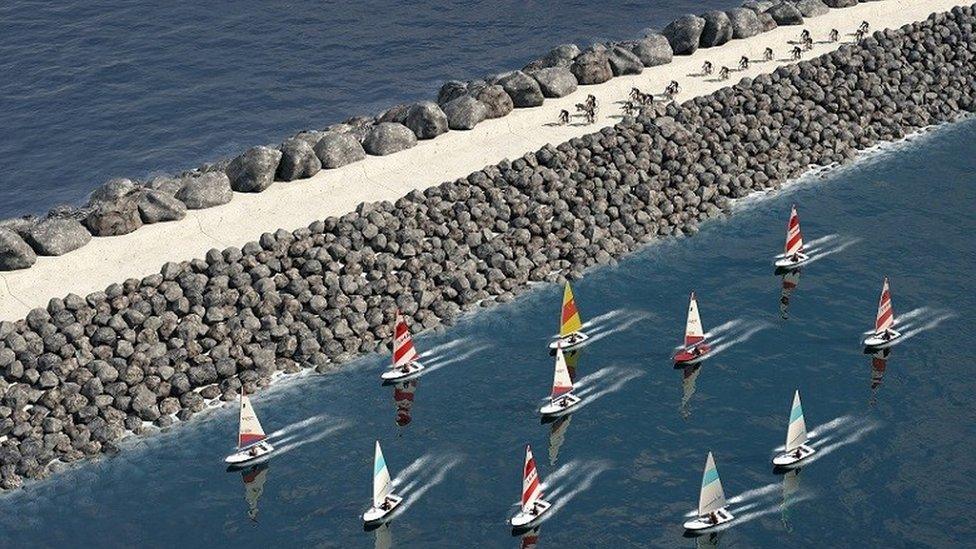
Hopes for a Swansea Bay Tidal Lagoon were dashed
The new operator, Transport for Wales, suffered a series of cancellations a month after it got started, in November.
Despite the M4 relief road inquiry completing, no decision was taken on whether to go ahead with a new motorway south of Newport.
And in Westminster, the Swansea Bay Tidal Lagoon project was finally killed off by the UK government, who deemed it too expensive.
The Wales Office became a bit of a revolving door - while the head honcho, Welsh Secretary Alun Cairns, remained, his department saw four junior ministers in a year.
Plaid Cymru was delivered a shock when Simon Thomas resigned his seat as Mid and West Wales AM. He later admitted to charges of making indecent images of children, but avoided jail.
Brexit was a subject that AMs had much to say about, but little power.
A row brewed between with the UK and Welsh governments about whether devolved powers would be lessened after the UK left the EU - and in response the assembly passed an act that enshrined EU law in Welsh law.
But Welsh ministers reached a deal, and the act was repealed.
In 2019, AMs will face the challenges of Brexit, due to take place in March, and will need to decide the fate of the M4.
Will Welsh politics be calmer in the next 12 months than the last, or will the conditions continue to be bracing?
- Published21 April 2018
